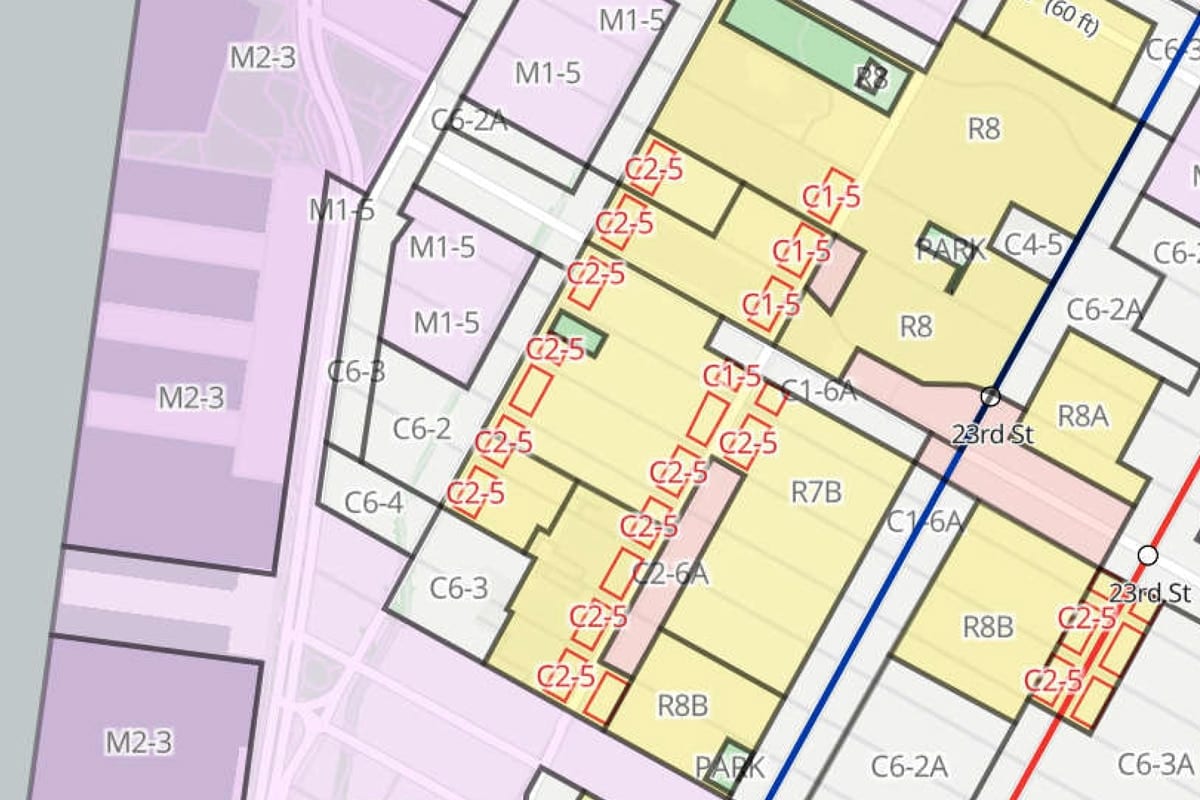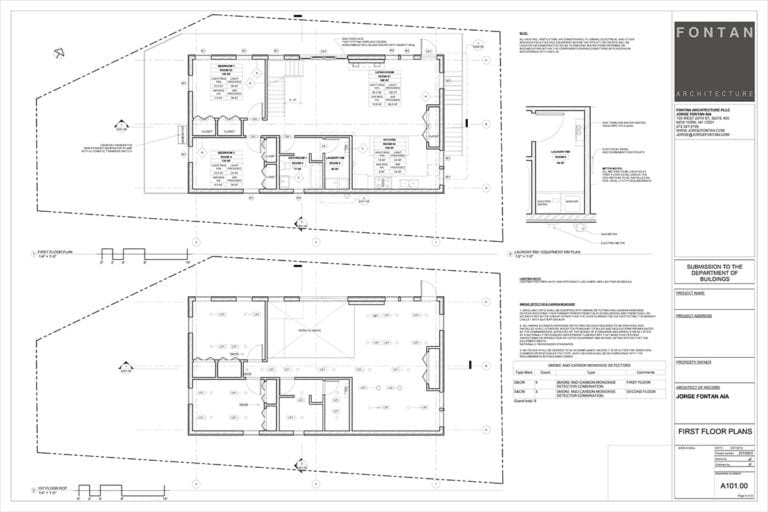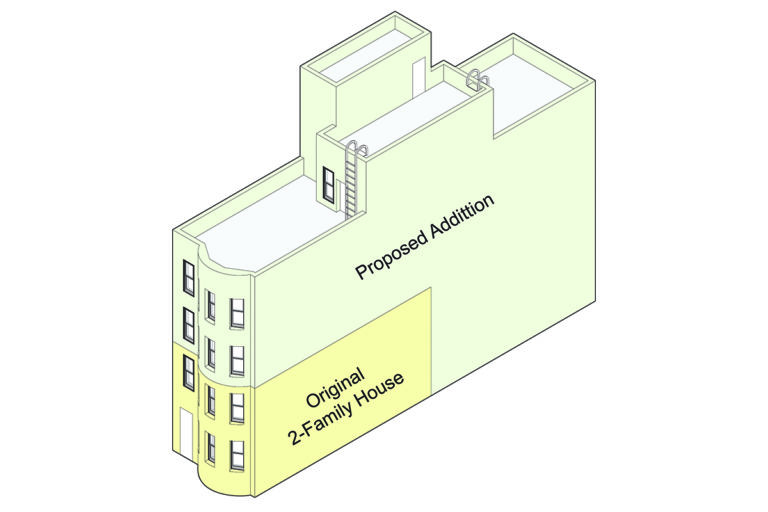C2-6A Zoning is a Local Retail and Local Service Contextual Commercial Zoning District in NYC. In C2-6A you can build a variety of commercial building uses, community facilities, and residential buildings. C2-6A Zoning has a low commercial FAR of 2 but these buildings can often have a residential development above the commercial spaces. C2-6A has a residential equivalent of R7A a Contextual Zone.
The C2-6A Zoning District is a sub district of C2 Zoning and C2-6 Zoning in NYC a commercial zoning district with common residential use. Zoning districts that end with a letter are contextual zoning districts. Contextual Zoning Districts are required to comply with the Quality Housing Program for residential use. Commercial Buildings in Contextual Zoning have some quality Housing Regulation applied to them as well specifically height and setback requirements.
C2-6 Zoning Districts:
- C2-6
- C2-6A
C2-6A Residential Equivalent:
- R7A
C2-6A Zoning Regulations
The C2-6A Zoning District is primarily residential with commercial uses on the street level. C2-6A Zoning is mapped in a small area of Manhattan and Queens. The commercial uses are usually typical commercial uses for residential areas including retail, restaurants, and services for the day to day needs of a residential neighborhood.
C2-6A Residential Equivalent
Most Commercial Zoning districts have a Residential Equivalent. This equivalent is the Residential Zoning you would comply with when developing a residential building or mixed use building. The residential equivalent for C2-6A is R7A Zoning.
Mixed Use Building C2-6A
You can develop a mixed use building with commercial and residential zoning. In this case you would apply the requirements of C2-6A and R7A in designing a mixed use building. Because of the low Floor Area Ratio for C2-6A it would be most likely that a new development would have residential use above the commercial floor(s) in order to maximize the development potential.
C2-6A Zoning Specifications
C2-6A Commercial Floor Area Ratio (FAR):
Floor Area Ratio determines the floor area that can be built on the property.
FAR = 2
The FAR is for Commercial Floor Area, residential use usually differs from Commercial.
C2-6A Community Facility Floor area Ratio
FAR = 4
This FAR applies to buildings with both commercial and community facility use.
Yard Requirements for Commercial Use in C2-6A
Side Yards
Side Yards are not required, but if side yards are provided they must comply with the following:
At minimum 8 feet in width or
At minimum 5 feet in width with an average width of 8 feet.
Some special circumstances will require side yards.
Rear Yard
20 Foot rear yard required
C2-6A Building Height and Setbacks
The building height and setbacks of commercial contextual districts are governed by the residential equivalent height and setback requirements for the Quality Housing Program.
NYC Zoning
As an architect I study zoning very closely. NYC Zoning is complicated and quite involved. In this article we reviewed some of the basic Zoning Codes with regards to commercial zoning district C2-6A. This analysis does not assume to cover every possible issue and condition, but provide a general overview of the zoning codes.
Thank You for reading our Blog Post on C2-6A Zoning in NYC.
I hope this was helpful. You can leave questions or comments below. If you want to discuss a specific project with an architect you can contact us directly.
Request a Consultation with Fontan Architecture

This post was written by Jorge Fontan AIA a Registered Architect and owner of New York City architecture firm Fontan Architecture. Jorge Fontan has earned 3 degrees in the study of architecture including two degrees from the City University of New York and a Masters Degree in Advanced Architectural Design from Columbia University. Jorge has a background in construction and has been practicing architecture for 20 years where he has designed renovations and new developments of various building types.



